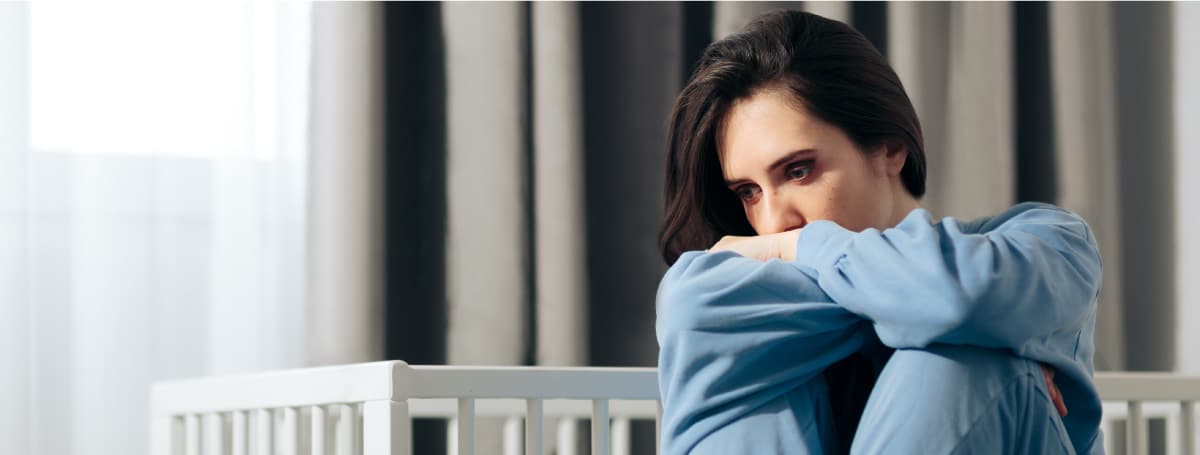Baby Blues After Pregnancy – Or is it Postpartum Depression?
Baby blues can turn into postpartum depression before you even realise it. “I didn’t know what this feeling was. I had never experienced it before. It kept building as more time passed. The anxiety and the thoughts… dangerous thoughts. About hurting myself… about hurting my baby,” says Anjali, trying to explain her worst fears.
“They call it “sowar,” a term for baby blues, where I come from (North India). Before I knew it, it had turned into something much worse. Thank god, my sister-in-law found me that day, otherwise I don’t even know what would’ve happened to me.” Quite a chilling story, isn’t it? Unfortunately, incidents like this one happen more often than we think and not everyone is as lucky.
Postpartum depression is a dangerous mental health condition, which puts new mothers at risk of suicide, depression, anxiety and a lot more. It might often be confused with “baby blues” but the key factor is: Baby blues don’t last for more than two weeks at maximum. After this period, it is considered to be postpartum depression.
It is important that new mothers and all their loved ones stay informed about postpartum depression to be able to recognise signs early on, if any. It might help you seek the professional help you need immediately.
Here are a few signs of postpartum depression to be on the watch-out for:
- Mood swings– Mood swings are a very common symptom of postpartum depression. A person may feel happy one moment and then might quickly move to feeling sad, irritable or angry with no real reason.
- Anxiety– Excessive worrying, feeling panicky for no reason and having irrational fears or obsessions are all signs of postpartum anxiety. You could be anxious or worried about small things such as taking a bath, your baby’s feeding session, diaper changes or having to spend time with your relatives who’ve come to visit you. You need to reach out for postpartum anxiety support.
- Sadness– It might be difficult to understand why you’re feeling sad suddenly without having any reason to. This sadness usually is not triggered by any incident but if it is, it could last for really long periods of time.
- Irritability – You might constantly find yourself irritated. Small things might tick you off.
- Feeling overwhelmed– You might constantly feel overwhelmed. This is understandable too. Having a baby is a big change. You might be feeling burdened with all the responsibilities; or you might be the primary caretaker of your baby, or you might have household chores to look after or all of this at once.
- Crying– Of course, sadness and despair will be accompanied by lots and lots of tears. Crying for no reason should set off alarm bells.
- Reduced concentration– All the anxiety, sadness, and crying are bound to take its toll on you. It can lead to you losing focus on the things that you deem important. A lack of focus worsens depression because you are unable to achieve your goals which leads to a cycle of unhappiness, hopelessness and despair.
- Appetite problems– Most foods become tasteless, or you might find you have lost all appetite. Neglect in food and nourishment is a very common symptom of postpartum depression.
- Trouble sleeping – New moms have trouble sleeping as is because of babies waking up in the middle of the night demanding nappy changes or midnight snacks. Things could get worse because of postpartum depression. You might find yourself lying awake at odd hours of the night or being unable to sleep at all.
If these symptoms extend beyond two weeks after the childbirth, it isn’t postpartum blues anymore and you need to reach out for medical help immediately. This is a very delicate stage of any woman’s life, if you know any new mothers, always keep checking on them, try to help them out, most importantly, talk to them.




